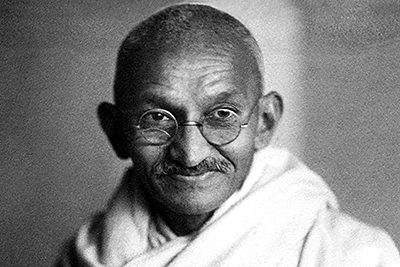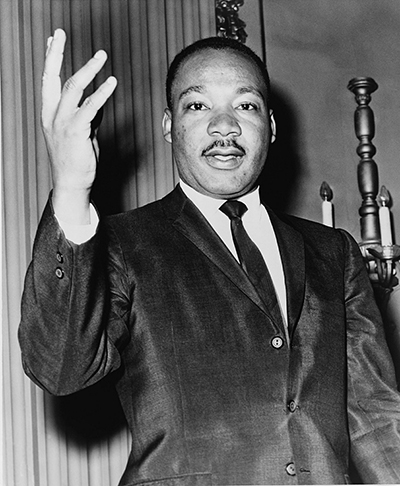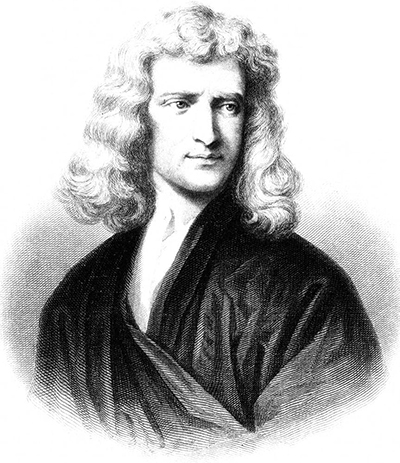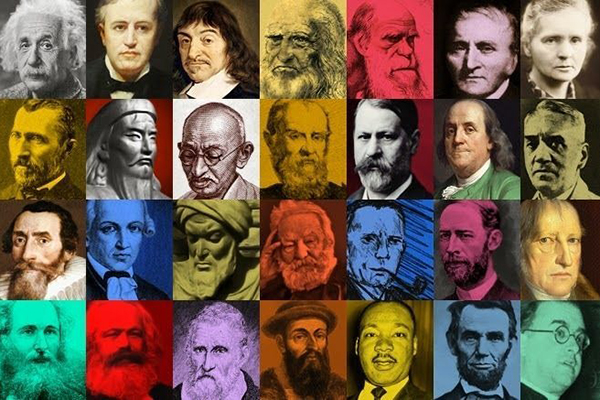Throughout history, the world has been graced with the presence of numerous remarkable men who have left an indelible mark on humanity. From visionary leaders to groundbreaking scientists, these extraordinary individuals have shaped the course of history and continue to inspire generations. In this article, we will delve into the lives and accomplishments of the top 10 greatest men, whose legacies have stood the test of time.
Mahatma Gandhi (1869-1948):

Mahatma Gandhi, born Mohandas Karamchand Gandhi on October 2, 1869, in Porbandar, India, was a prominent leader in the Indian independence movement against British rule. He is widely known for his philosophy of nonviolent resistance, which he termed “Satyagraha,” and his unwavering commitment to truth and justice. Here are some key highlights of his life and contributions:
- Early Life and Education: Gandhi was born into a Hindu merchant family and studied law in London, England. He practiced law in South Africa, where he first witnessed and experienced racial discrimination, which sparked his activism.
- Civil Rights Activism in South Africa: During his time in South Africa (1893-1914), Gandhi actively fought against racial segregation and discriminatory laws targeting the Indian community. He organized civil rights campaigns and pioneered the concept of nonviolent protest as a powerful tool for social change.
- Return to India and Leadership in the Independence Movement: Gandhi returned to India in 1915 and became a prominent figure in India’s struggle for independence from British rule. He advocated for nonviolent civil disobedience and launched various campaigns against oppressive British policies.
- Salt March (Dandi March): One of Gandhi’s most significant acts of civil disobedience was the Salt March in 1930. He led a 240-mile march to the Arabian Sea to protest British salt taxes, galvanizing millions of Indians in the fight for independence.
- Promotion of Self-Sufficiency and Swadeshi: Gandhi emphasized self-sufficiency and promoted the use of local products (Swadeshi) as a way to boycott British goods and assert India’s economic independence.
- Advocacy for Hindu-Muslim Unity: Gandhi was committed to communal harmony and worked tirelessly to bridge the gap between Hindus and Muslims. He undertook fasts to protest communal violence and urged Indians to respect all religions.
- Role in India’s Independence: Through his tireless efforts and advocacy of nonviolent resistance, India gained its independence from British rule on August 15, 1947.
- Principles of Ahimsa (Nonviolence) and Satyagraha: Gandhi’s philosophy of nonviolence and truth (Ahimsa and Satyagraha) inspired civil rights movements worldwide and influenced leaders like Martin Luther King Jr. and Nelson Mandela.
- Assassination: Sadly, on January 30, 1948, Gandhi was assassinated in New Delhi by a Hindu nationalist who opposed his conciliatory stance towards Muslims.
Mahatma Gandhi’s legacy endures as an emblem of peace, moral courage, and unwavering commitment to justice and human rights. His life’s work continues to be a source of inspiration for movements advocating for social change and nonviolent resistance across the globe.
Nelson Mandela (1918-2013):
Nelson Mandela, born Rolihlahla Mandela on July 18, 1918, in Mvezo, South Africa, was a revered anti-apartheid revolutionary, political leader, and philanthropist. He is best known for his pivotal role in ending apartheid and his subsequent presidency as South Africa’s first black head of state. Here are some key highlights of his life and contributions:
- Early Activism: Mandela became involved in anti-colonial politics and the African National Congress (ANC) during his university years. He later co-founded the ANC Youth League, advocating for the rights of black South Africans.
- Apartheid and Imprisonment: In 1961, Mandela co-founded the ANC’s armed wing, Umkhonto we Sizwe (MK), to resist apartheid through nonviolent and armed struggle. He was arrested in 1962 and sentenced to life imprisonment for his anti-apartheid activities.
- 27 Years in Prison: Mandela spent 27 years incarcerated, initially on Robben Island and later in Pollsmoor Prison and Victor Verster Prison. Despite his imprisonment, he remained a symbol of resistance and hope for the anti-apartheid movement.
- Release and Negotiations: Due to international pressure and internal reforms in South Africa, Mandela was released from prison on February 11, 1990. He played a central role in negotiating an end to apartheid and the establishment of multiracial elections.
- End of Apartheid: Mandela’s efforts and negotiations with President F.W. de Klerk led to the dismantling of apartheid policies. In 1994, South Africa held its first democratic elections in which all races could vote, and Mandela was elected President.
- Reconciliation and Nation-Building: As President, Mandela worked to heal the wounds of apartheid and promote reconciliation between black and white South Africans. He established the Truth and Reconciliation Commission to address the atrocities of the past.
- Social Justice and Humanitarian Work: After his presidency, Mandela remained committed to social justice and human rights causes, particularly those concerning HIV/AIDS awareness and education for children.
- Global Impact: Mandela’s struggle against apartheid and his commitment to forgiveness and reconciliation made him a global symbol of resistance against oppression. He received numerous international awards and honors.
- Retirement and Legacy: Mandela retired from politics in 1999 but continued to advocate for peace and humanitarian causes. He passed away on December 5, 2013, at the age of 95, leaving behind a legacy of courage, forgiveness, and perseverance.
Nelson Mandela’s leadership and moral compass have left an indelible mark on the world, inspiring people to fight for justice, equality, and human rights. He remains an enduring symbol of the power of forgiveness and reconciliation in the face of adversity.
Albert Einstein (1879-1955):
Albert Einstein was a brilliant physicist who is widely regarded as one of the greatest scientists in history. He was born on March 14, 1879, in Ulm, in the Kingdom of Württemberg in the German Empire. Einstein’s groundbreaking theories revolutionized the understanding of the universe and paved the way for modern physics. Here are some key aspects of his life and contributions:
- Early Life and Education: Einstein showed an early interest in science and mathematics. He studied physics and mathematics at the Polytechnic Institute in Zurich, Switzerland, and graduated in 1900.
- Annus Mirabilis Papers: In 1905, often referred to as his “Annus Mirabilis” (miracle year), Einstein published four groundbreaking papers that transformed physics. These papers laid the foundation for the theory of relativity, including the special theory of relativity, which introduced the famous equation E=mc², showing the equivalence of energy and mass.
- Theory of General Relativity: In 1915, Einstein formulated the theory of general relativity, which provided a new understanding of gravity as the curvature of spacetime. This theory explained phenomena like the bending of light around massive objects and the precession of the orbit of Mercury.
- Nobel Prize: Einstein was awarded the Nobel Prize in Physics in 1921 for his discovery of the photoelectric effect, which demonstrated the dual nature of light as both a particle and a wave.
- Emigration to the United States: Due to the rise of the Nazi regime in Germany, Einstein, who was of Jewish heritage, emigrated to the United States in 1933. He accepted a position at the Institute for Advanced Study in Princeton, New Jersey.
- Einstein’s E = mc² and Atomic Energy: Einstein’s equation, E = mc², laid the groundwork for understanding the conversion of matter into energy. This equation became fundamental to the development of nuclear energy and atomic weapons.
- Opposition to Nuclear Weapons: Although Einstein played a role in nuclear research during World War II, he later became an advocate for nuclear disarmament and spoke out against the use of nuclear weapons.
- Unified Field Theory: Throughout his life, Einstein pursued a unified theory that would unite all the fundamental forces of nature. However, he was not able to develop a complete theory before his death.
- Legacy: Einstein’s work continues to shape modern physics and our understanding of the universe. His name is synonymous with genius, and his contributions have inspired countless scientists and thinkers worldwide.
Albert Einstein passed away on April 18, 1955, in Princeton, New Jersey. His theories and ideas continue to be a cornerstone of physics, and his influence extends far beyond the scientific community, making him one of the most iconic and influential figures in history.
Leonardo da Vinci (1452-1519):
Leonardo da Vinci was a true Renaissance man, renowned for his mastery in various fields such as art, science, engineering, and invention. He was born on April 15, 1452, in Vinci, Italy, and his unparalleled contributions have had a lasting impact on numerous disciplines. Here are some key aspects of his life and achievements:
- Artistic Genius: Leonardo is widely regarded as one of the greatest artists in history. He created iconic masterpieces such as “Mona Lisa” and “The Last Supper,” both of which continue to captivate audiences worldwide.
- Scientific Investigations: Leonardo was a keen observer of nature and conducted numerous scientific studies, including anatomy, geology, botany, and the flight of birds. His detailed anatomical drawings were far ahead of their time and provided invaluable insights into the human body.
- Inventions and Engineering: Leonardo was a visionary inventor and engineer. He sketched designs for flying machines, tanks, bridges, and various other inventions that were centuries ahead of their time.
- Architectural Concepts: Leonardo proposed innovative architectural designs, including plans for cities and buildings, many of which were not realized during his lifetime but demonstrated his forward-thinking approach to urban planning.
- Mathematics and Geometry: Leonardo’s artworks often demonstrated a deep understanding of mathematics and geometry, as he employed these principles to create harmonious and proportionate compositions.
- Notebooks and Codices: Throughout his life, Leonardo filled numerous notebooks and codices with sketches, observations, and ideas, providing a glimpse into the mind of a true genius.
- Versatility: Leonardo’s ability to excel in multiple disciplines set him apart from his contemporaries. He seamlessly blended his artistic talent with scientific curiosity, making him a unique and influential figure.
- The Renaissance Man: Leonardo da Vinci embodied the ideal of the Renaissance man, excelling in not only the arts and sciences but also in music, literature, and other fields of human endeavor.
- Legacy: Leonardo’s work has had a profound and enduring influence on the worlds of art and science. His ideas and innovations continue to inspire and shape the fields he touched, leaving an indelible mark on human culture.
Leonardo da Vinci passed away on May 2, 1519, in Amboise, France. His contributions remain a testament to the power of human creativity and intellectual curiosity, and he is celebrated as a paragon of the Renaissance era and an eternal symbol of artistic and scientific excellence.
Martin Luther King Jr. (1929-1968):

Martin Luther King Jr. was a prominent civil rights leader, minister, and activist who played a pivotal role in the American civil rights movement. He was born on January 15, 1929, in Atlanta, Georgia, USA, and his tireless efforts in advocating for racial equality and justice made him one of the most influential figures in American history. Here are some key aspects of his life and contributions:
- Montgomery Bus Boycott: King rose to prominence as a civil rights leader during the Montgomery Bus Boycott in 1955-1956. He was chosen to lead the boycott after Rosa Parks was arrested for refusing to give up her seat to a white person on a segregated bus.
- Nonviolent Resistance: Inspired by Mahatma Gandhi’s principles of nonviolent resistance (Satyagraha), King advocated for peaceful civil disobedience as a powerful tool for social change.
- Southern Christian Leadership Conference (SCLC): In 1957, King helped establish the SCLC, a civil rights organization dedicated to achieving racial equality through nonviolent protest and direct action.
- March on Washington: On August 28, 1963, King delivered his famous “I Have a Dream” speech during the March on Washington for Jobs and Freedom. The speech emphasized his vision of a racially harmonious future and remains one of the most iconic speeches in history.
- Civil Rights Act of 1964: King’s leadership and the efforts of the civil rights movement contributed significantly to the passage of the Civil Rights Act of 1964, which outlawed racial segregation and discrimination in public places and employment.
- Selma to Montgomery March: In 1965, King led the historic Selma to Montgomery march to advocate for African Americans’ voting rights. The march, which faced violent opposition, eventually led to the passage of the Voting Rights Act of 1965.
- Nobel Peace Prize: In 1964, King was awarded the Nobel Peace Prize for his nonviolent resistance to racial prejudice and his dedication to achieving racial justice through peaceful means.
- Opposition to the Vietnam War: As the civil rights movement progressed, King expanded his activism to address issues of economic inequality and opposition to the Vietnam War.
- Assassination: Tragically, on April 4, 1968, Martin Luther King Jr. was assassinated in Memphis, Tennessee. His death sent shockwaves across the nation and the world, but his legacy and message of peace and justice live on.
Martin Luther King Jr.’s work continues to be an inspiration for movements advocating for civil rights, equality, and social justice. His contributions to American society have left an enduring impact, and his dream of a united, just, and equitable America remains a guiding light for generations to come.
William Shakespeare (1564-1616):
William Shakespeare was an English playwright, poet, and actor widely regarded as one of the greatest writers in the English language. He was baptized on April 26, 1564, in Stratford-upon-Avon, England. Shakespeare’s works, which include plays, sonnets, and poems, have had an enduring influence on literature and theater. Here are some key aspects of his life and contributions:
- Theater Career: Shakespeare moved to London in the late 1580s, where he became involved in the theater as an actor and playwright. He was associated with the Lord Chamberlain’s Men, a company of actors that later became the King’s Men, and he wrote plays for their performances.
- Plays: Shakespeare wrote approximately 38 plays, including tragedies (e.g., “Hamlet,” “Othello,” “Macbeth”), comedies (e.g., “A Midsummer Night’s Dream,” “Much Ado About Nothing”), and histories (e.g., “Henry V,” “Richard III”). His works explore a wide range of themes and human emotions.
- Poetry: In addition to his plays, Shakespeare wrote 154 sonnets, a collection of 154 poems that explore themes of love, beauty, time, and mortality. His poetry showcases his mastery of language and profound understanding of human emotions.
- Innovative Use of Language: Shakespeare’s writing style is characterized by his creative use of language, extensive vocabulary, and poetic devices. He coined many new words and phrases that have become part of the English language.
- Universality and Timelessness: Shakespeare’s works continue to be performed and studied worldwide, transcending time and cultural barriers. His exploration of universal themes and complex characters makes his plays relevant to audiences across generations.
- The Globe Theatre: Shakespeare was associated with the Globe Theatre, a famous London playhouse where many of his plays were performed. The Globe Theatre is considered an iconic symbol of Elizabethan theater.
- Legacy: Shakespeare’s impact on literature and drama is immeasurable. His works have inspired countless writers, playwrights, and artists, and his influence can be seen in various forms of media, including film, music, and literature.
- Authorship and Controversy: While there is a vast body of evidence linking Shakespeare to his works, some theories and controversies have emerged over the years, suggesting that other individuals may have been involved in the creation of some plays attributed to him.
William Shakespeare passed away on April 23, 1616, in Stratford-upon-Avon. His legacy endures, and his works continue to be celebrated and performed globally, making him an essential figure in the world of literature and culture.
Alexander the Great (356-323 BC):
Alexander the Great, also known as Alexander III of Macedon, was a legendary military leader and conqueror who lived from 356 BC to 323 BC. He was born in Pella, the ancient capital of Macedonia, and he ascended to the throne at the age of 20 after his father, King Philip II, was assassinated. Here are some key aspects of his life and achievements:
- Military Conquests: Alexander is best known for his military campaigns, during which he created one of the largest empires in history. He embarked on a series of conquests that included Asia Minor, Egypt, Persia, and parts of India.
- Defeat of the Persian Empire: One of Alexander’s most significant achievements was the defeat of the mighty Persian Empire. He decisively defeated the Persian King Darius III at the battles of Issus and Gaugamela, securing control over vast Persian territories.
- Expansion into India: Alexander’s ambitions knew no bounds, and he led his army into the Indian subcontinent. However, his troops’ exhaustion and reluctance to continue led to his decision to turn back at the Beas River.
- Cultural Exchange: During his conquests, Alexander sought to promote cultural exchange between the Macedonians and the people of the regions he conquered. He adopted local customs and encouraged his soldiers to marry local women, fostering unity among his diverse army.
- Legacy of Hellenistic Civilization: Alexander’s empire became the foundation for the spread of Hellenistic civilization, a blending of Greek culture with the cultures of the conquered territories. This cultural diffusion influenced art, architecture, language, and philosophy for centuries.
- Support of Scholarship: Alexander had a deep appreciation for knowledge and philosophy. He was tutored by Aristotle, the renowned Greek philosopher, and he took a keen interest in promoting learning and scholarship among his subjects.
- Death and Succession: In 323 BC, at the age of 32, Alexander died in Babylon under mysterious circumstances. With no direct heir, his empire was divided among his generals, marking the beginning of the Hellenistic period.
- Enduring Reputation: Alexander’s military genius and conquests have earned him a lasting reputation as one of history’s greatest military commanders. His achievements continue to be studied and admired to this day.
Alexander the Great’s legacy extends beyond his military conquests. His influence on culture, governance, and the spread of Greek culture left an indelible mark on the ancient world and shaped the course of history in significant ways.
Thomas Edison (1847-1931):
Thomas Edison was a prolific American inventor and businessman who made groundbreaking contributions to various fields, particularly electricity and communication. He was born on February 11, 1847, in Milan, Ohio, and his relentless pursuit of innovation earned him the nickname “The Wizard of Menlo Park.” Here are some key aspects of his life and achievements:
- Electric Light Bulb: Edison is perhaps best known for inventing the practical incandescent light bulb. After countless experiments, he successfully created a long-lasting, commercially viable electric light bulb in 1879, which revolutionized indoor lighting.
- The Phonograph: In 1877, Edison invented the phonograph, a device capable of recording and reproducing sound. It was the first practical sound recording and playback device, paving the way for the modern music and entertainment industry.
- Motion Pictures: Edison made significant contributions to the development of motion pictures. He invented the kinetoscope, a motion picture viewing device, and built the world’s first motion picture studio, where he filmed short films.
- Direct Current (DC) Electrical System: Edison was a proponent of direct current (DC) electrical distribution, which became the first widespread electrical system in the United States. However, his DC system faced competition from George Westinghouse’s alternating current (AC) system.
- Electrochemical Storage Batteries: Edison developed improvements to the design of the storage battery (rechargeable battery), making it more practical for various applications, including powering electric vehicles.
- Telegraphy and Communication: Edison made advancements in telegraphy and communication, inventing the quadruplex telegraph, which allowed multiple messages to be sent simultaneously over a single wire.
- Invention Factory at Menlo Park: Edison established a research laboratory in Menlo Park, New Jersey, often called the “invention factory.” It was the world’s first industrial research laboratory, where he and his team worked on various inventions.
- Patents: Edison held over 1,000 patents for his various inventions, making him one of the most prolific inventors in history.
- Legacy: Thomas Edison’s contributions to technology and innovation have left an enduring legacy. His inventions and discoveries shaped the modern world and significantly improved the quality of life for people around the globe.
Thomas Edison passed away on October 18, 1931, in West Orange, New Jersey. His work continues to be celebrated, and his spirit of relentless experimentation and innovation serves as an inspiration to inventors and entrepreneurs to this day.
Nelson Rolihlahla Mandela (1918-2013):
Nelson Rolihlahla Mandela, commonly known as Nelson Mandela or Madiba, was a South African anti-apartheid revolutionary, political leader, and philanthropist. He was born on July 18, 1918, in Mvezo, South Africa, and became a global symbol of resistance against racial discrimination and an advocate for justice and reconciliation. Here are some key aspects of his life and contributions:
- Fight Against Apartheid: Mandela played a crucial role in the anti-apartheid movement in South Africa, which sought to dismantle the system of racial segregation and discrimination imposed by the white minority government.
- African National Congress (ANC): He joined the ANC, a political organization dedicated to fighting for the rights of black South Africans, and later became a prominent leader within the party.
- Armed Struggle: In response to the increasing repression of the apartheid regime, Mandela and others within the ANC embraced armed resistance as a means to challenge the oppressive policies.
- Imprisonment: In 1962, Mandela was arrested and sentenced to life in prison for his anti-apartheid activities. He spent 27 years behind bars, becoming a symbol of resistance and the international face of the anti-apartheid struggle.
- Robben Island: For the majority of his imprisonment, Mandela was held on Robben Island, where he endured harsh conditions and isolation. Despite this, he remained steadfast in his commitment to justice and reconciliation.
- Release and Negotiations: Due to international pressure and internal changes in South Africa, Mandela was released from prison on February 11, 1990. After his release, he engaged in negotiations with the apartheid government to bring about a peaceful transition to democracy.
- President of South Africa: In 1994, South Africa held its first democratic, non-racial elections, and Mandela was elected as the country’s first black president. He served from 1994 to 1999, advocating for reconciliation and promoting social and economic equality.
- Truth and Reconciliation Commission (TRC): Mandela established the TRC, which aimed to address the atrocities of the past, promote healing, and foster national unity by encouraging both victims and perpetrators of human rights violations to share their stories.
- Global Statesman: After his presidency, Mandela remained an influential and respected figure globally. He continued to work for peace, human rights, and the fight against poverty and HIV/AIDS through various foundations and organizations.
- Legacy: Nelson Mandela’s leadership and vision for a free and equal South Africa have left an indelible mark on the world. He is celebrated for his courage, forgiveness, and commitment to justice, making him one of the most revered figures in modern history.
Nelson Mandela passed away on December 5, 2013, in Johannesburg, South Africa. His life and legacy continue to inspire people worldwide in their fight against oppression, discrimination, and injustice.
Isaac Newton (1643-1727):

Isaac Newton was a renowned English mathematician, physicist, astronomer, and natural philosopher who is considered one of the most influential scientists in history. He was born on January 4, 1643, in Woolsthorpe, Lincolnshire, England. Newton made groundbreaking contributions to various fields of science and laid the foundation for modern physics and mathematics. Here are some key aspects of his life and achievements:
- Laws of Motion: Newton’s most significant contribution was his formulation of the three laws of motion, known as Newton’s laws. These laws describe the relationship between an object’s motion and the forces acting on it, becoming the cornerstone of classical mechanics.
- Universal Law of Gravitation: Newton also proposed the law of universal gravitation, which states that every mass in the universe attracts every other mass with a force proportional to the product of their masses and inversely proportional to the square of the distance between them.
- Calculus: Independently of German mathematician Gottfried Wilhelm Leibniz, Newton developed the principles of calculus, a branch of mathematics that deals with rates of change and integration, greatly advancing the field of mathematics.
- Optics: Newton’s work on optics included the study of light and color. He conducted experiments with prisms and discovered that white light is composed of a spectrum of colors. He also wrote the influential book “Opticks,” which explored various phenomena related to light and color.
- Reflecting Telescope: Newton designed and built the first practical reflecting telescope, known as the Newtonian telescope, which utilized mirrors instead of lenses to gather and focus light.
- Royal Society: Newton became a fellow of the Royal Society in 1672 and later served as its president from 1703 to 1727. His association with the society furthered his scientific work and allowed him to collaborate with other scholars.
- “Philosophiæ Naturalis Principia Mathematica”: In 1687, Newton published his magnum opus, “Mathematical Principles of Natural Philosophy” (commonly known as the “Principia”), in which he outlined his laws of motion and universal gravitation. The “Principia” is considered one of the most important scientific works ever written.
- Later Life and Legacy: Newton’s work revolutionized the scientific understanding of the natural world. His ideas and principles continue to be fundamental to the study of physics and mathematics. He is often regarded as one of the greatest scientists in history.
Isaac Newton passed away on March 31, 1727, in Kensington, London, leaving behind a lasting legacy that continues to shape the way we perceive and comprehend the physical universe.
Conclusion:
These ten extraordinary men have left an indelible impact on the world, each contributing to the advancement of knowledge, social progress, and the betterment of humanity. Their legacies continue to inspire and serve as a guiding light for future generations, reminding us of the potential for greatness within us all.
- Related post: 5 Tips for Using an Electric Shaver




